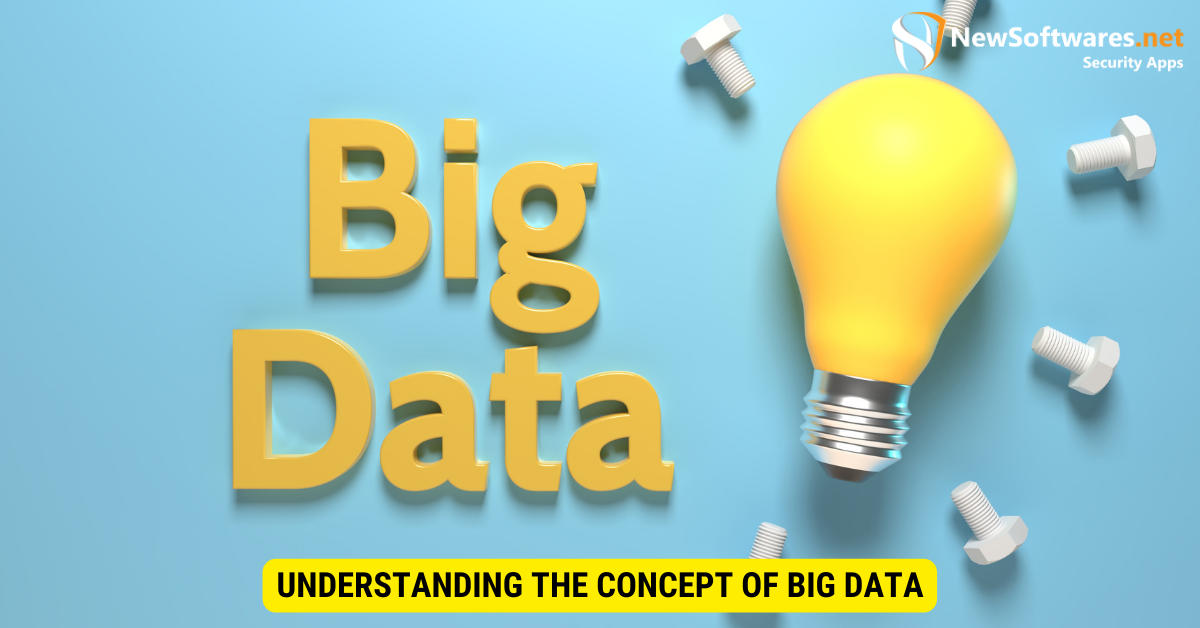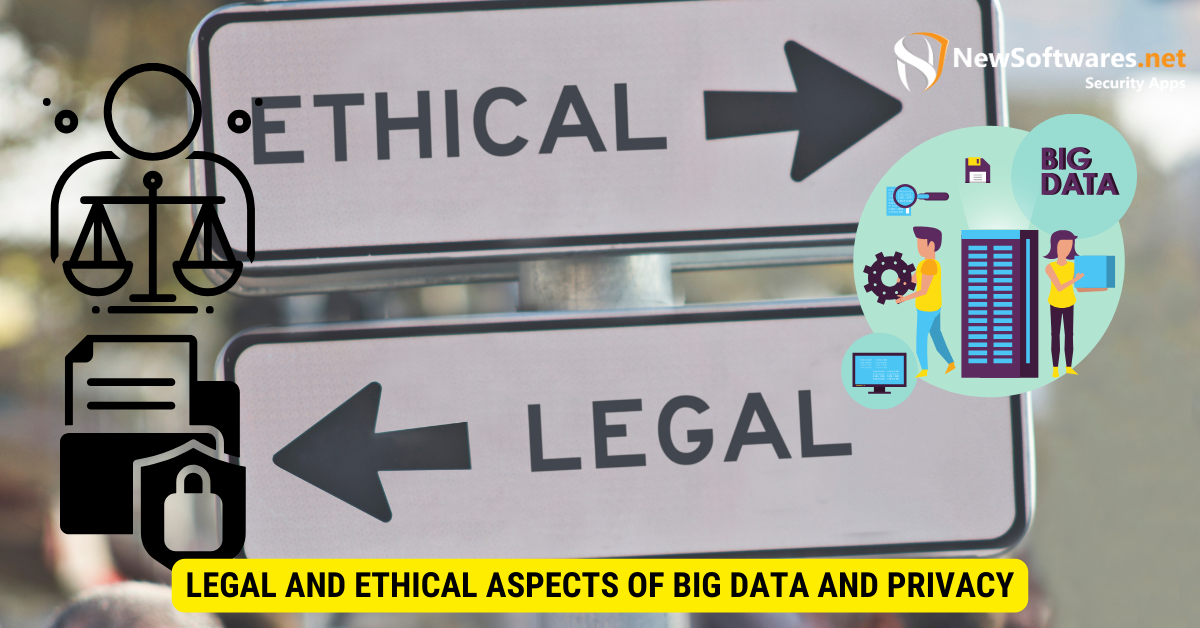Big data’s extensive collection and analysis can impact individual privacy.
In today’s digital age, where data is constantly being collected and analyzed, it’s natural to question how much our privacy is being compromised. With the emergence of big data, which refers to the large volumes of information being generated and processed, concerns about personal privacy have become even more pronounced. To better understand the implications of big data on privacy, it’s important to explore the concept of big data itself.
Understanding the Concept of Big Data

As the name suggests, big data refers to vast amounts of information that are too large and complex to be examined using traditional methods. This data is often collected from various sources, such as social media platforms, online transactions, and digital devices. It includes structured data, such as numbers and categories, and unstructured data, such as text and multimedia files. The main challenge with big data lies in extracting meaningful insights from this immense information.
When it comes to big data, the possibilities are endless. With the development of technology, we can now collect and store huge amounts of data. This data can come from various sources, including sensors, cameras, and even satellites. The sheer volume of generated data is mind-boggling, with estimates suggesting that around 2.5 quintillion bytes of data are created daily. To put this into perspective, that’s equivalent to about 90 years’ worth of HD video streaming!
But it’s not just the volume of data that makes it “big.” The velocity at which data is generated and processed is equally important. In today’s fast-paced world, organizations need to be able to analyze this information in real time to remain competitive. Whether it’s monitoring social media trends, tracking customer behavior, or detecting anomalies in financial transactions, the ability to process data quickly is crucial.
Another defining characteristic of big data is its variety. Gone are the days when data was limited to structured information like numbers and categories. Nowadays, big data encompasses a diverse range of data sources and formats. From text and images to videos and audio files, the variety of data that falls under the big data umbrella is staggering. This poses a unique challenge for organizations, as they need to develop sophisticated tools and techniques to handle and make sense of this diverse range of data.
Defining Big Data
Big data can be characterized by the three Vs: volume, velocity, and variety. We’ve already discussed big data’s volume and velocity aspects, but let’s delve deeper into the concept of variety.
The variety of big data is what sets it apart from traditional data. Data was primarily structured in the past, meaning it was organized in a predefined format that made it easy to analyze. However, with the advent of big data, we now have to deal with unstructured and semi-structured data. Unstructured data refers to information that doesn’t have a predefined format, such as text documents, social media posts, and emails. On the other hand, semi-structured data has some organization but doesn’t fit neatly into a traditional database structure, like XML or JSON files.
Including unstructured and semi-structured data in big data analysis opens up a new world of possibilities. For example, organizations can gain insights into customer sentiment, identify emerging trends, and even detect potential risks or opportunities by analyzing text data. Similarly, analyzing multimedia files like images and videos can provide valued insights into consumer behavior, product preferences, and brand perception.
The Role of Big Data in Today’s World

Big data is crucial in various sectors, including business, healthcare, finance, and governance. Let’s explore some of the ways big data is transforming these industries.
In the business world, big data has become a game-changer. Organizations can leverage these vast datasets to gain insights into consumer behavior, develop personalized marketing strategies, improve operational efficiency, and predict future trends. By analyzing customer data, companies can identify patterns and preferences, allowing them to tailor their products and services to meet the exact needs of their target audience. This leads to increased customer satisfaction and helps businesses stay ahead of the competition.
In the healthcare sector, big data can potentially revolutionize how we approach patient care. By analyzing large volumes of medical records, genetic data, and real-time patient monitoring data, healthcare providers can develop personalized treatment plans, predict disease outcomes, and identify potential epidemics. This concept, known as precision medicine, promises to deliver more effective and targeted healthcare interventions, ultimately improving patient outcomes.
When it comes to finance, big data is a game-changer. Financial institutions can analyze vast amounts of transactional data to detect fraud, identify market trends, and make informed investment decisions. Banks and other monetary institutions can better understand customer behavior, assess creditworthiness, and mitigate risks by leveraging big data analytics. This not only benefits the institutions themselves but also helps protect consumers from fraudulent activities.
Lastly, big data has a significant impact on governance and public administration. Governments can analyze large datasets to gain insights into citizen behavior, monitor public sentiment, and make data-driven policy decisions. By harnessing the power of big data, governments can improve service delivery, enhance public safety, and promote transparency and accountability.
The Intersection of Big Data and Privacy
While big data presents numerous benefits and opportunities, it raises concerns about personal privacy. Collecting massive amounts of data, particularly personal information, has sparked debates regarding big data analytics’ ethical and legal implications.
How Big Data Collects Personal Information
Big data is often collected through various sources, such as social media platforms, online services, and IoT devices. These sources collect information about individuals’ preferences, behaviors, and interactions. Data brokers also play a significant role in collecting and aggregating personal information and creating comprehensive outlines that can be used for targeted advertising or other purposes.
The Potential Risks of Big Data to Personal Privacy
One of the main concerns associated with big data and privacy is the potential for information to be used in ways that individuals may not be aware of or have consented to. Additionally, with the increasing power of machine learning and artificial intelligence algorithms, there is a risk of unintended biases and discrimination based on personal data. Furthermore, the possibility of data breaches and unauthorized access to personal information remains a significant concern.
Legal and Ethical Aspects of Big Data and Privacy

The relationship between big data and privacy is subject to legal and ethical considerations. Governing bodies worldwide have implemented laws and regulations to protect individuals’ privacy rights in the context of big data analytics.
Current Laws Governing Big Data and Privacy
In various countries, laws such as the General Data Protection Regulation (GDPR) in the European Union and the California Consumer Privacy Act (CCPA) in the United States have been enacted to regulate personal data collection, use, and sharing. These laws aim to give individuals greater control over their personal information and ensure transparency and accountability for organizations that process personal data.
Ethical Considerations in Big Data Collection and Use
Ethics play a crucial role in the collection and use of big data. Organizations must consider factors such as consent, transparency, fairness, and potential unintended consequences when employing big data analytics. Ethical frameworks, such as Privacy by Design, aim to embed privacy into the systems and processes used for data collection and analysis.
Protecting Your Privacy in the Age of Big Data
While individuals may feel vulnerable in the face of big data analytics, some steps can be taken to safeguard personal privacy.
Tips for Safeguarding Personal Information
First and foremost, individuals should be cautious about the information they share online and with third parties. Regularly reviewing and updating privacy settings on social media platforms and other online accounts can help maintain control over personal data. Additionally, using strong and unique passwords, enabling two-factor authentication, and being mindful of phishing attempts can fortify the security of personal information.
Tools and Techniques for Privacy Protection
A variety of tools and techniques can aid in protecting personal privacy. Virtual private networks (VPNs) can encrypt internet traffic, making it more difficult for third parties to intercept and analyze data. Ad-blockers and anti-tracking extensions can also assist in limiting the collection of personal information while browsing the web. Finally, being aware of privacy-enhancing technologies, such as differential privacy and federated learning, can further protect personal privacy in the age of big data.
The Future of Big Data and Privacy
As technology evolves, so will the relationship between big data and privacy. Predicting the future trends in this field can help individuals and organizations navigate the challenges and opportunities that lie ahead.
Predicted Trends in Big Data and Privacy
One potential trend is further strengthening data protection laws and regulations, with a greater emphasis on individual rights and control over personal information. Developing privacy-preserving techniques, such as secure multiparty computation and homomorphic encryption, may also contribute to striking a balance between big data analytics and privacy. Furthermore, innovative approaches to consent and data governance, such as data cooperatives and personal data vaults, may empower individuals to have more agency over their data.
Balancing Big Data Benefits and Privacy Concerns
Ultimately, the future of big data and privacy will require a delicate balance between capitalizing on the benefits of big data analytics and protecting personal privacy. This necessitates ongoing discussions and collaborations between policymakers, technology developers, and individuals to establish the necessary safeguards and guidelines.
Key Takeaways
- Big data collects vast amounts of information, often without explicit consent.
- There’s potential misuse of data by corporations and governments.
- Data breaches can expose personal information.
- The difficulty in controlling and knowing where one’s data goes.
- The merging of offline and online data can create comprehensive profiles of individuals.
FAQs
What is big data?
Big data refers to extremely large datasets that are examined to reveal patterns, trends, and links.
How does big data affect me?
Your data contributes to big datasets, which can be used to influence decisions in sectors like marketing, healthcare, finance, and more.
Can I opt out of big data?
It’s challenging to opt out completely, but you can minimize your digital footprint and be cautious about sharing information.
Who uses big data?
Many entities, including corporations, governments, researchers, and more.
Why should I be concerned about big data?
It can influence many areas of your life, and there are potential risks with personal data exposure and misuse.
Conclusion
In conclusion, the explosion of big data has brought unprecedented opportunities and challenges to personal privacy. While privacy concerns are valid, it’s important to recognize that individuals have agency and can actively take steps to protect their personal information. By understanding the nuances of big data, being aware of privacy risks, and utilizing available tools and techniques, individuals can navigate the complexities of the digital landscape and safeguard their privacy in the age of big data.
